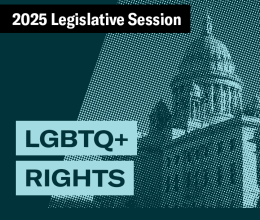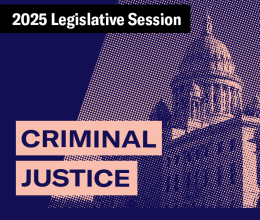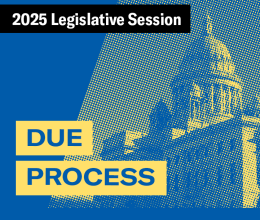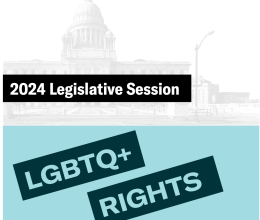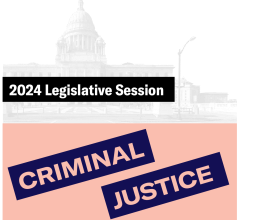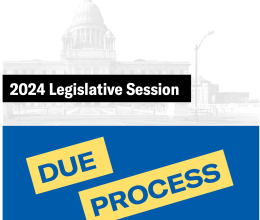The Rhode Island ACLU today issued a report calling Rhode Island’s new civil union law, enacted over the strong protests of the community it was designed to benefit, “a fiasco” that highlights the need for passage of true marriage equality legislation. The report states that “it is difficult to think of another ‘civil rights’ bill that has generated so much attention, yet done so little for so few.”
In the first two months of its enactment, only fourteen gay and lesbian couples have taken advantage of the new statute to obtain “civil union” status. The report notes that “no other state that has passed a law formally recognizing gay and lesbian couples has seen such a paltry and lackluster response to its passage.” In fact, taking a close look at the twelve other states that in recent years have enacted marriage, civil union or domestic partnership legislation for gay and lesbian couples, the report notes that the initial rate of license issuances in those states has often exceeded Rhode Island’s rate by a factor of tenfold or more. The report also stresses that the statistics for Rhode Island are unlikely to get better, pointing out that “it is precisely in the immediate aftermath of these laws’ enactments” that couples are most apt to make use of them. The lesson, concludes the report, “is clear: if Rhode Island is serious about recognizing the status of lesbian and gay couples, full marriage equality is the only appropriate response, and one that the General Assembly must take up.”
The 22-page report, “Two Months of Civil Unions in Rhode Island: Already Time for a Divorce?”, cites at least three major reasons why the new statute is being shunned by couples: the inclusion of an incredibly broad “religious” exemption that significantly undercuts the law’s purpose; the dashed expectation that, after twelve years of effort, a vote on a marriage bill would finally take place this year; and the prevalence of marriage states throughout New England, where “Rhode Islanders can travel a few hours in just about any direction and be in a state that, unlike their own, recognizes full marriage equality.”
The report examines licensing statistics from California, Connecticut, Illinois, Iowa, Massachusetts, Nevada, New Hampshire, New Jersey, New York, Oregon, Vermont and Wisconsin, all of which in recent years have officially recognized the status of gay and lesbian couples by marriage, civil union or domestic partnership. The report states that “gay and lesbian couples’ initial responses to enactment of all these laws – whatever form they have taken – have been remarkably consistent over time, and consistently different from Rhode Island’s experience.” In Illinois, for example, the only other state this year to also implement a civil union law, over 1,600 licenses were issued in the first month of their availability, compared to the nine licenses issued in that time period in Rhode Island. Taking into account the population difference between the two states, the disparity is still more than tenfold. This disparity is not atypical from the data available from other states, the report shows.
Calling the data “irrefutable” that Rhode Island’s “civil union law is a bust, providing little benefit to anyone,” the report argues that “Rhode Island needs to pass true marriage equality legislation.” Acknowledging that the General Assembly is unlikely to do so in 2012, the report encourages two interim actions by the legislature next session. One is the repeal of the incredibly broad religious exemption, known as the “Corvese amendment,” that was unexpectedly added on the House floor and that Governor Chafee acknowledged “eviscerates the important rights that enacting a civil union law was meant to guarantee for same sex couples in the first place.” Taking this action, the report states, “will at least keep the law from actually undermining any statutory protections that gay and lesbian couples already have, and may encourage more people to apply for licenses.”
Secondly, the report urges the Assembly to pass legislation allowing same sex couples who live in Rhode Island and have been lawfully married elsewhere to get a divorce in Rhode Island, something that a R.I. Supreme Court decision prohibits. The court ruling, the report notes, has led to an “absurd situation where people live in a state that refuses to recognize their marriages, yet requires them to stay married even if they wish to divorce.”


